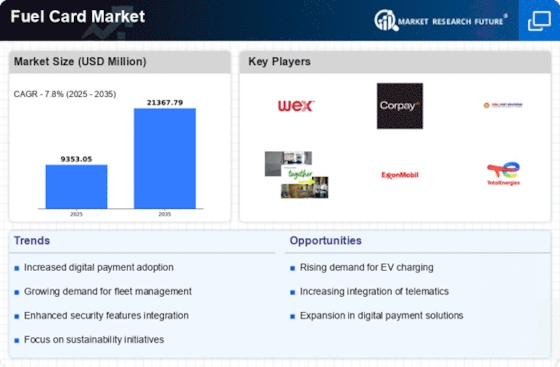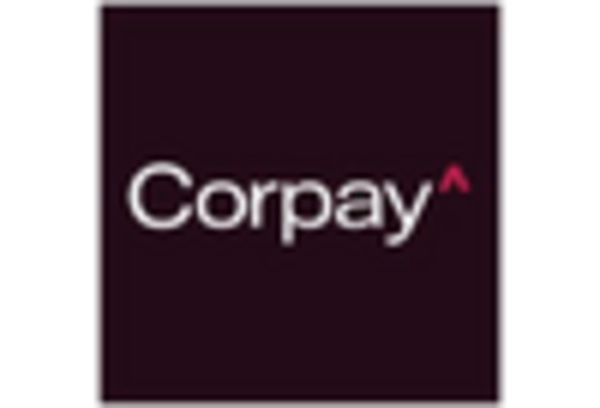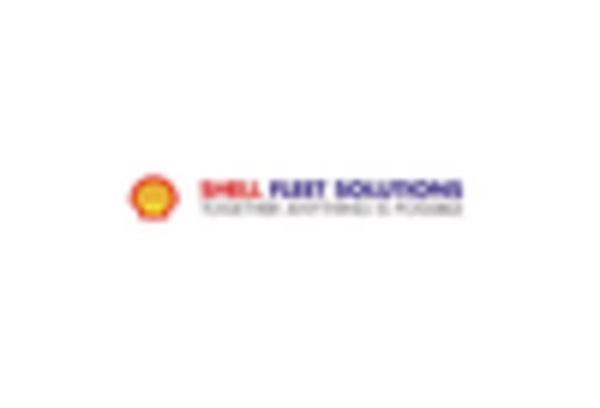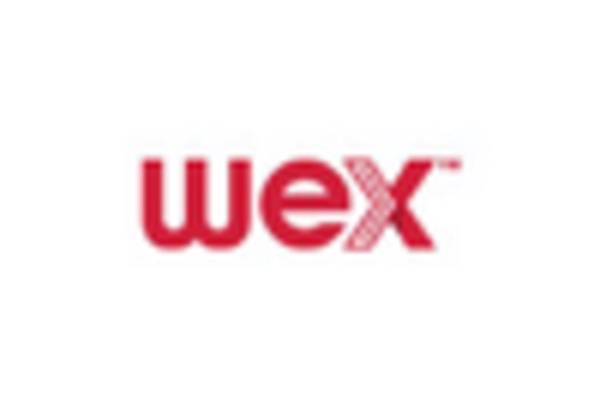Market Share
Fuel Card Market Share Analysis
Fuel card companies often use a system of separation through assistance contributions. Providers anticipate setting themselves apart with compelling features including comprehensive information research, ongoing monitoring, and user-friendly mobile apps. Organizations aim to attract and retain a larger clientele by providing additional benefits, which will ultimately strengthen their position in the market share hierarchy. The overall purpose of dedication initiatives and rewards frameworks is to increase market share and increase client dependability. These loyalty campaigns attract new customers looking for opportunities to save money in addition to encouraging existing customers to stick with a particular gasoline card. Long-term market share security and growth for a provider are enhanced by cultivating a devoted customer base. Contributions that are customized and flexible approach a system to capture various market segments. Fuel card suppliers recognize that different businesses and individuals have unique needs, therefore they design plans that may be tailored to meet specific requirements. This might include defining expenditure caps, disclosing preferences, and integrating with other business executives' frameworks. By providing flexibility, providers may attract a wider audience and establish themselves as accommodating and accommodating in the market. Fuel card providers invest in persuasive and lucid writing to showcase their client-focused highlights, technological innovations, and best-selling advice. Effective marketing initiatives help suppliers solidify their position in the market by attracting new customers and enhancing their reputation. It may be quite effective to attract cost-conscious customers and gain market share by providing budget-friendly plans, clear cost structures, and strict fuel restrictions. Cost positioning necessitates a delicate balance between reasonableness and the perceived value of the services being offered. Market leaders use a special technique called persistent development to maintain and increase their market share. Over time, fuel card providers who adapt to changing customer demands, integrate emerging innovations, and showcase state-of-the-art features will have a greater chance of gaining market share. Extending administrations into new districts or nations permits suppliers to take advantage of beforehand undiscovered markets and broaden their client base. This procedure requires a comprehension of territorial contrasts in fueling practices, guidelines, and buyer inclinations, empowering suppliers to fit their contributions to explicit geographic markets.

















Leave a Comment